|
Italian composer Antonio Vivaldi (1678-1741) is regarded as one of the greatest composers of the Baroque era along with his contemporaries J.S. Bach and G.F. Handel. Also a virtuoso violist and noted impresario, Vivaldi composed prolifically and firmly established the concerto, of which he wrote over 500, as an accepted compositional form. This Sunday we hear one of these concertos in its entirety, the "Concerto in G Minor, RV 317" with violinist Harmony Tucker.
0 Comments
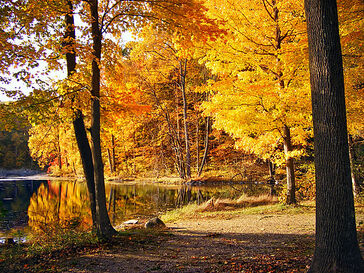 By Nicholas A. Tonelli from Pennsylvania, USA - Ablaze, CC BY 2.0, https://commons.wikimedia.org/w/index.php?curid=21219382 By Nicholas A. Tonelli from Pennsylvania, USA - Ablaze, CC BY 2.0, https://commons.wikimedia.org/w/index.php?curid=21219382 Signs of Autumn abound. A season of change and of stewardship: a time to assess our support of God's work in the world and our willingness to receive God's providence. The 15th century German hymn tune "Gott der Vater wohn uns bei" (inclusively translated as "Mother God, Be Our Stay") is an ode to the protective promise of God. Paul Manz's setting is hopeful and joyful with a lively manual ritornello dancing above the cantus firmus in the pedal. Vivaldi's Four Seasons has been excerpted plentifully at Plymouth over the years. We do so again with the opening Allegro of Movement III: Autumn. The movement signifies a country dance in the crisp autumn air. Vivaldi offers these unambiguous words to the music's intent: Celebrates the peasant, with songs and dances, The pleasure of a bountiful harvest. And fired up by Bacchus' liquor, many end their revelry in sleep. An Italian Baroque Oktoberfest! The service ends with a "Postlude" by William Mathias. Quirky, cheery, and very British in its regal character, we jauntily walk out into the Autumn air. 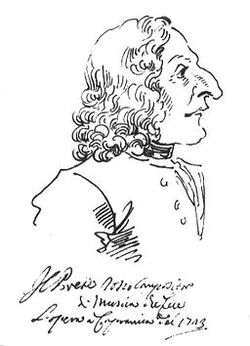 Pier Leone Ghezzi / Public domain Pier Leone Ghezzi / Public domain Antonio Lucio Vivaldi (1678-1741) wore many hats in his lifetime: a teacher, virtuoso violinist, a Roman Catholic priest, and a renowned composer admired throughout Europe. He wrote sacred choral music and over forty operas but is best known for his violin concertos, particularly Four Seasons, excerpts of which have been presented on several occasions in our services. Despite his fame and success, Vivaldi died in poverty much as his contemporary and admirer J.S. Bach would several years thereafter. Music still loved and cherished centuries later. Vivaldi composed a set of six cello sonatas with continuo between 1720 and 1730 and published in 1740 in Paris. This Sunday, excerpts from Sonata No. 3 in A Minor will be offered by cellist Heidi Mausbach. 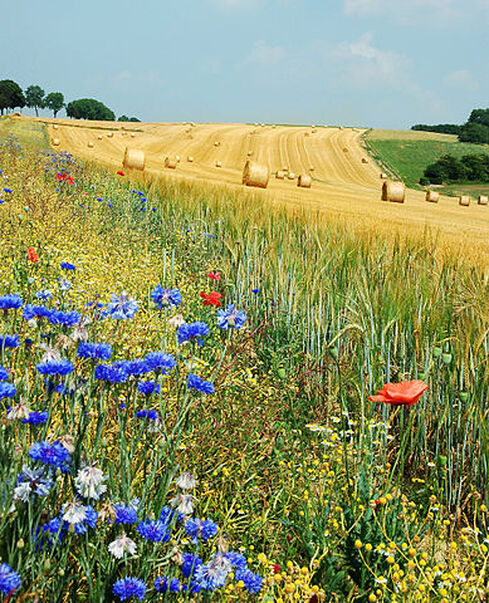 By I, Luc Viatour, CC BY-SA 3.0, https://commons.wikimedia.org/w/index.php?curid=998412 By I, Luc Viatour, CC BY-SA 3.0, https://commons.wikimedia.org/w/index.php?curid=998412 This Sunday morning we preface the beginning of summer with the fourth movement from Vivaldi's The Four Seasons, "L'estate" (Italian for Summer). This famous set of violin concerti was composed from 1716-17 and published in 1725. The Four Seasons is considered one of the earliest examples of programmatic music: music that follows a literary narrative and embodies the meaning of the prose, often quite literally. In Summer, cuckoo calls, the misery of the overbearing heat, and thunderclaps will represented within the music itself. The three movements are based on a three part sonnet, included below, most likely written by Vivaldi. Violinist Harmony Tucker will lead us into this summertime odyssey of beauty, unrelenting heat, and fierce storms threatening the European harvest. I. Allegro non molto Under a hard season, fired up by the sun Languishes man, languishes the flock and burns the pine We hear the cuckoo's voice; then sweet songs of the turtledove and finch are heard. Soft breezes stir the air, but threatening the North Wind sweeps them suddenly aside. The shepherd trembles, fearing violent storms and his fate. II. Adagio The fear of lightning and fierce thunder Robs his tired limbs of rest As gnats and flies buzz furiously around. III. Presto Alas, his fears were justified The Heavens thunder and roar and with hail Cut the head off the wheat and damages the grain. At 6:00 p.m. Bobby will be joined by cantor Blair Carpenter, guitarist Alan Skowron, and bassist Peter Strening for a spirit-led service including arrangements by John Bell and a nod to Pride Month from singer-songwriter Kacey Musgraves.
Antonio Vivaldi (1678-1741) was an Italian composer, virtuoso violinist, instructor, and priest whose influence on composers was widespread even in his day. At this Sunday's morning services, we will hear his Concerto in D Minor for Two Violins, Op. 3, No. 11 with violinists Harmony Tucker and Katrina Nelson. The work is one of twelve concertos published in 1711 originally entitled L'estro armonico (the harmonic inspiration). The D minor concerto was highly revered by contemporary J.S. Bach and transcribed for organ as Organ Concerto in D Minor, BWV 596. Bach transcribed several other Vivaldi works as well. At the 11:00 a.m. service, I will play a transcription of the final movement of Vivaldi's Winter from The Four Seasons as we anticipate the cold days ahead.
At 6:00 p.m. Bobby and vocalist Hannah Walters will offer a contemplative jazz-inflected musical experience on this First Sunday of Advent. Hannah is organist and Administrator of Music and Education at Peace With Christ Lutheran Church here in Fort Collins. |
Details
|
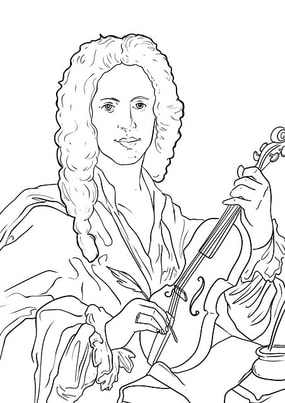
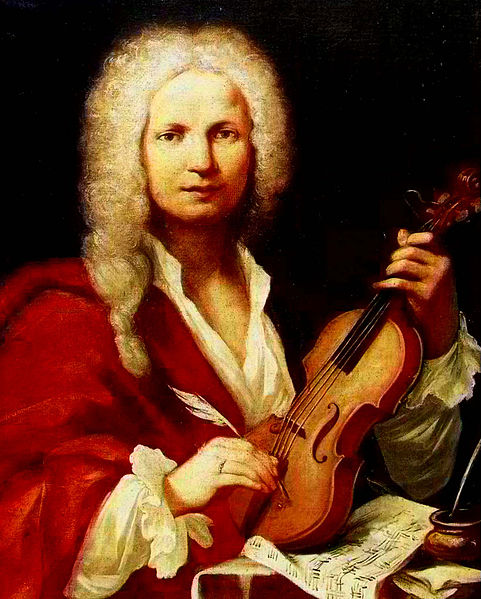
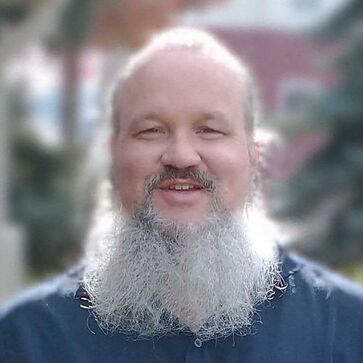
 RSS Feed
RSS Feed